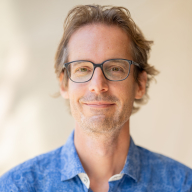
Patrick Gruban 🔸
Bio
Participation5
COO Successif, Trustee Effective Ventures UK, and member of the Talos Network board
Co-Director EA Germany 2023/24, entrepreneur for over 25 years, member of the EA Munich organizer team since 2020.
How others can help me
Let me know if you have ideas for Successif
How I can help others
I can offer to mentor and be a sounding board if you are an EA-aligned non-profit entrepreneur
Posts 48
Comments134
Topic contributions5
As an employer, I would not want to rely on an employee taking a below-market salary. Otherwise, I might be incentivised to keep someone on the team even if they are underperforming, undermining the work of other team members. I would want to hire for talent first and leave salary discussion for the last step, to avoid bias.
That being said, there might be good cases for early-stage orgs that might otherwise not be able to hire, or for positions that might open because of the low salary requirements. At Successif, we recommend that job-seekers use informational interviews with potential employers to explore these kinds of new roles.
I agree and would encourage potential investors to take into consideration base rates of startups reaching €1M+ on profits yearly when comparing this to other forms of investments. I spent 5 min prompting Claude to come up with a BOTEC based on this post, which I haven't checked but could be an entry point to additional research.
What you write aligns with the challenges we see from our advisees, and based on your profile, you may be a good fit for our career advising program if you are open to working on AI Risk reduction.
For people we have helped in our program, we typically see transition timelines of 6-18 months, but just today I talked with someone for whom it took two years. My colleague Moneer wrote about his experiences in getting into a position, which included taking 170 actions (like applications, 1-1s, projects). This can seem like a lot, but it comes down to 3 per week on average over a year.
You don't have to have an academic background to succeed (I never went to university myself), but regardless of your qualifications, be prepared for it to take time to find a position. In our advising, we emphasize the importance of building networks, conducting informational interviews, and getting more information on how to position oneself as a promising candidate.
That being said, you might be able to have a higher counterfactual impact if you find a position that is not in one of the well-known orgs - I would keep that in mind.
Talent pipelines. There’s no fellowship to train people to go directly into advocacy for AIS, compared to over 10 such efforts aimed at research. We’re training AIS researchers by the 100s, and leaving advocates to figure it out for themselves.
I'm not sure if this is different from what you meant, but we ran the first iteration of our AI Safety Advocacy Fellowship this year with promising results.
Thank you for asking this question! I have the feeling that for some national groups, we might be upholding them based on path dependence, not because they have intentionally selected the right target group. I wrote a recent comment about this, based on my experience at EA Germany.
I'm most excited about national organisations that can reach specific, narrow target groups, as many of the scalable programs would seem more efficient to do on a larger scale.
That being said, a larger organization operating at the continental or international level could still hire contractors to experiment with smaller interventions. This would mean having only one organization with one director, potentially increasing cost-effectiveness while allowing for experimentation with different target groups and markets.
A director of EA Europe could hire a team to organize a conference in the North of the UK, for example, while having an Italian-speaking contractor doing 1- 1s for Italy and organizing group calls for European CBs. As a UK CB, you take away these possibilities as you artificially narrow the focus without much reason.
I would be excited for EA UK to think more broadly in scope, connect with other European national groups, and expand the parameters within which the director would be allowed to operate.

I agree and argued in a similar direction in a comment last year.